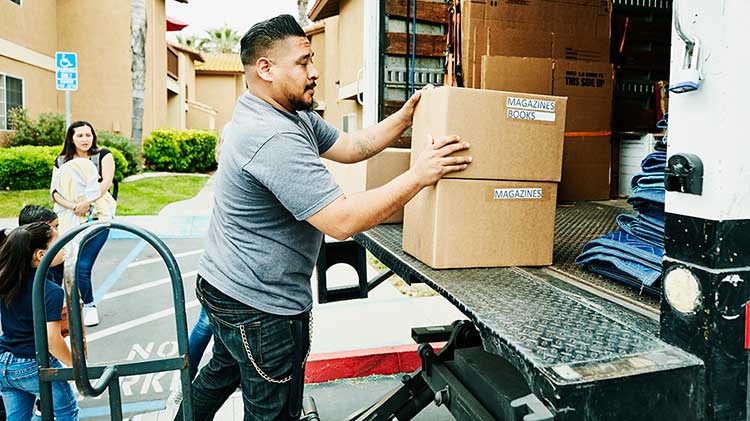What to do if you lose your job
Whether you file for unemployment or rethink health insurance options, consider these steps to take if you lose a job.
There are a lot of emotions and questions you might have after losing a job. Whether it was expected or a surprise, you'll have to consider how the loss affects everything from your day-to-day routine to health insurance options, and you'll need to update your resume. Here are some things to consider that can help protect your livelihood now and in the future.
What to do after losing a job
- Collect all money you have due from your employer. Turn in expense reports, confirm your severance pay and ask to be credited for unused vacation, sick or personal time provided in your employer's policies or by state laws.
- Leave gracefully. See that you return equipment that belongs to your employer, make the transition smooth for your colleagues and collect contact information to keep in touch. People you know from this company may eventually be useful in the future.
- File for unemployment benefits immediately. The sooner you complete the paperwork, the sooner you may receive money to help cover expenses until you find a new job. This may help you pay bills like your mortgage, rent, utilities and credit card payments.
- Review health insurance options. The Consolidated Omnibus Budget Reconciliation Act (COBRA) allows you to continue coverage through your employer at your own expense for up to 18 months, or you may elect to use a health insurance exchange. Compare those options, as well as coverage available through a spouse’s employer, if applicable. Finally, you can withdraw funds for eligible healthcare expenses from a health savings account (HSA), if you have one.
- Handle your 401(k). When you leave a job your 401(k) may require action. In some cases, you can keep your money in the same fund, but you may have the option to rollover to your next employer’s plan, into an individual retirement account (IRA) or cash it out.
- Revise or create a budget. Good starting points for your budget include eliminating or reducing expenses to make up for lost income. Consider asking creditors about alternative payment arrangements or getting a short-term roommate.
- Prioritize your expenses. Pay your most essential bills first like your home, utilities, vehicle payments and health insurance coverage.
- Update your resume. Change dates, freshen up the look and consider adding skills or certifications you’ve gained in your current role. You can also update your LinkedIn profile and try to leverage social media contacts who may know of job openings. Review your social media profiles across the board and if needed, consider making adjustments to present a more professional online footprint to prospective employers.
- Be proactive in your job search. It’s important to note that job searching takes a considerable amount of time. Start early and apply on websites that list jobs, utilize your network and refresh your interview skills.
- Work on personal development. With some time before your next role, it's a good opportunity to upskill. Adding some items to your resume can make you a more attractive candidate. This may also help you get into a healthy and productive routine so that you are better prepared to transition into a new role when the time comes.
- Consider part-time or freelance work. Be careful to balance the income from this work and the income you may be receiving in unemployment benefits.
- Do your research. Learn more about the companies for which you want to work. This can help you understand their hiring process. Prospective employers may ask why you want to work for them in your interview, so it’s wise to be prepared with a well thought out answer.
- Attend networking events. These include job fairs, industry specific events or affinity groups. See what’s available in your local area as well as online, there are also some email lists you can sign up for to keep you posted on opportunities. The more people you make aware of your employment situation, the more potential for connections to be made that could lead to a job.
Proactive steps to take while you are employed
- Build an emergency fund. It’s recommend putting about six months of income in reserve, but if you don't have anything, don't panic. Start slowly and add to these reserves with regular deposits. If you lose your job, an emergency fund can help you pay bills without dipping into your retirement funds or taking a loan.
- Pay down some debt. While your income is steady, think about reducing some of your debt. If you can get rid of some while you're in a good financial position, it may not be as much of a hill to climb later.
- Foster strong professional relationships. If possible, when you’re reaching out to someone for the first time in a while, it shouldn’t be to ask for a job. Try to meet with people in your network regularly to keep those relationships healthy for when you need them most.
Losing your job may seem like a hopeless situation but know that there are options available to you. Hopefully, these tips can help you feel better prepared and optimistic to get back out there if you find yourself in this scenario. While you move into your next career stage, consider looking at our tips to help you change jobs.




